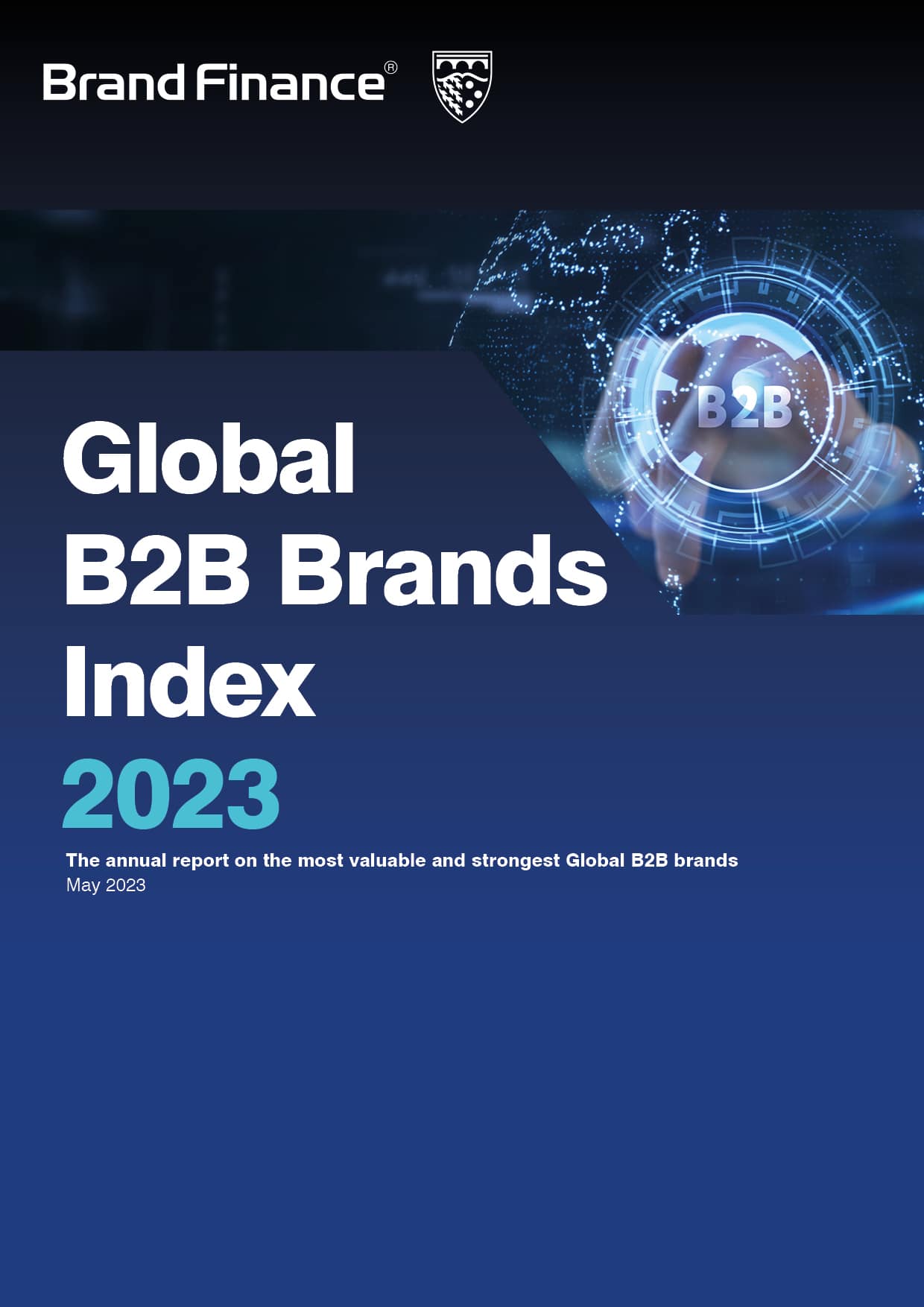This article was originally published in the Brand Finance Global Most Valuable B2B Brands Index 2023.

Acting sustainably and being seen to do so is imperative for brands, but sustainability is a multifaceted concept that can be hard for business leaders to navigate. Investors, CEOs and CFOs, and CMOs are told by campaigners, NGOs, consultants and sustainability teams that committing to sustainability is both the right thing to do and a business imperative.
There are indeed many opportunities, whether in supplying the products and services that facilitate the transition to a green economy, or simply by differentiating your brand as a sustainable alternative. However, without articulating the case in financial terms it can be hard to determine the business case for action.
The Brand Finance Sustainability Perceptions Index is intended to be the first step to addressing this challenge. By quantifying the value of sustainability perceptions, we hope to make the value of action on sustainability more tangible.
Our research shows that even for individual businesses, there can be billions of dollars of financial value to be gained from enhanced action and associated communication. Equally, there can be billions at risk from insufficient action that leads to accusations of greenwashing, or even misallocated or excessive investments in sustainability communication that does not cut through.
This is just as true for B2B brands as it is for B2C. The driver scores for B2B dominated sectors show a very significant role for sustainability as a driver of choice. The figure for Real Estate is 9.5%, Insurance 7.9%, IT Services 7.8%, Logistics 7.2%, Banking 6.8%, Commercial Services 5.8%, Semiconductors 4.7%, and Engineering 2.8%. This is on a par with many mainly B2C sectors, such as Utilities and Auto (both 9.4%), alcoholic beverages (7.5%), apparel (6.7%) and consumer electronics (4.7%).
Until recently, sustainability as a driver of choice has been seen as the preserve of B2C sectors, such as cosmetics, food and drink, and apparel. However, the rapid acceleration of ESG-linked funds over the last five years, along with increasingly firm demands from other stakeholders (such as customers, regulators and the public), has changed that picture. B2B businesses are now acutely aware that to continue to raise finance at competitive rates, to retain customers, and to stay ahead of legislation, commitment to sustainability and communication of progress is essential.
Many B2B brands find themselves in an interesting position of being both subject to ESG-related demand drivers, but also solutions providers in the transition towards a lower carbon economy.
“The rapid acceleration of ESG-linked funds over the last five years, along with increasingly firm demands from other stakeholders (such as customers, regulators and the public), have meant that B2B businesses are now acutely aware that to continue to raise finance at competitive rates, to retain customers, and to stay ahead of legislation, commitment to sustainability and communication of progress is essential.”
Brand Finance recently undertook work for HCLTech, one of the world’s leading IT services consultancies, to help them better understand the role that sustainability plays in shaping the way the way potential customers, employees and financial analysts evaluate HCLTech. Whilst we found that the sustainability commitments outlined in HCL’s ‘Act. Pact. Impact’ sustainability report are very important to these groups, another key finding is that brands in the sector are more differentiated by the sustainability-related services that they offer to their clients.
Whether offering consulting services, financing, or novel technologies, B2B brands have a huge scope to create tangible change that benefits society and the environment. Communicating this capacity is key to maximising sustainability perceptions value.

